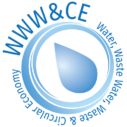Overview
1. Establishment of an Alliance and Center of Competence
- Skills alliance “Technologies and Management of Water, Wastewater, Waste and Circular Economy” for qualifications in SMEs, formed by VET institutions, chambers of commerce and universities/colleges from six EU countries and process-oriented expanded to involve other educational actors, public administrations, supply and disposal companies etc.
- Expansion of the skills alliance “Technologies and Management of Water, Waste water, Waste and Circular Economy” to 13 countries by involving 50 chambers of commerce and SME associations as well as 18 universities/universities of applied sciences/colleges.
- Transformation and continuation of the alliance into a Baltic Sea Region-wide centre of competence “Eco Innovation”, which promotes long-term cooperation between educational and economic actors, develops and implements qualifications and process R&D tasks.
- Tested and evaluated curriculum and teaching materials for a Train the Trainer course for vocational school teachers, trainers in SMEs and lecturers in further and higher education. During the project period, implementations are carried out at least in two universities.
- Analyses of economic development, education and labor markets in the Baltic Sea countries
- Qualification needs: Green Competences in Small and Medium Enterprises
2. Implementation and realization vocational training
- Tested and evaluated curricula, materials, examination regulations, etc. for the provision of six sector-specific additional qualifications already during the vocational training of stronger learners based on the dual training. Implementations are planned for at least two educational institutions from different countries during the project period.
- A digital educational platform will be developed.
- Development of standards for a validation workshop for WWW&CE competences in vocational schools for the purposes of education and assessment, as well as practical learning of WWW&CE competences.
3. Implementation and realization of further vocational training
- Tested and evaluated curricula and teaching materials for seven different further training courses for the target groups “Entrepreneurs, managers and specialists in SMEs” to impart competences and skills on management and technologies in water, waste water and waste management as well as on Cradle to Cradle. During the project, implementations will be carried out at least in three educational institutions in different countries.
- In order to meet the need and to reach companies from rural areas in particular, an online consultation service opened to companies in the field of training topics is to be offered in Hungary.
- Integration programme for the unemployed.
4. Implementation and realization of higher education
- Curricula, evaluation and examination regulations for two existing dual Bachelor degree programmes
- Management and Technology Energy Efficiency and Renewable Energies
- Management and Business Administration for SMEs
- 4 tested and evaluated curricula for study modules on SME management and technologies in the water, waste water, waste and environmental service sector, which are conducted in the dual study system and integrated into existing Bachelor’s degree programmes. The project will be implemented at least in one university.
- Solutions for manageable R&D tasks of SMEs
Specific R&D tasks are carried out for SMEs participating in the dual Bachelor’s degree programmes in connection with the testing of the study modules of students in the SME sector. - Analysis of the contemporary situation on the construction sites on area Satakunta in Finland.
5. Quality Assurance and Assessment
- Quality assurance for all educational measures developed in the project, for the transfer process and implementations, for the cooperation in the Skills Alliance and the Centre of Competence and for project implementation.
- Result report of all evaluations and assessments
6. Dissemination and use of the project results
- Book with all results of the project and distribution
- Transfer of all training measures and implementation counsulting
- Dissemination measures
- At least 10 (probably 12) result videos will be produced on all results of the project as well as on experiences of implementing partners.
